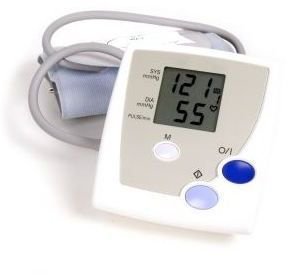Common Types of Hypertension Medications Including Side Effects
High Blood Pressure Statistics
High blood pressure or hypertension affects about one in three Americans, increasing their risk of sudden death and heart disease. Common hypertension medications are prescribed to help reduce the strain on the heart through actions involving the nervous and cardiovascular systems as well as water retention. Nearly three-quarters of Americans control their high blood pressure with one or more types of hypertension medications.
Types of Blood Pressure Medications
Your doctor has several options for treating your high blood pressure. She may begin by prescribing a diuretic or water pill. These drugs reduce blood pressure by controlling the amount of water in your blood. Lower blood volume means that your heart will work less to pump blood throughout your system.
Angiotensin-converting enzyme (ACE) inhibitors act on chemical processes in your body which encourage your blood vessels to relax. The wider the diameter of your blood vessels, the more freely blood can flow, thus reducing your blood pressure. Calcium channel blockers work similarly in that they relax your blood vessels. They will also slow your heart rate.
Angiotensin II receptor blockers work based on the same mechanisms as ACE inhibitors. Rather than inhibiting the formation of the angiotensin-converting enzyme, these medications block the effects, accomplishing the same purpose of relaxing the blood vessels. Vasodilators dilate the diameter of the blood vessels, allowing blood to flow more smoothly and reducing the strain on the heart. Alpha blockers inhibit the action of the hormone norepinephrine, thereby increasing blood flow by reducing resistance.
Beta blockers act by blocking the action of adrenaline which causes your heart to beat slower. Because of its side effects and action in the body, it is not often prescribed as the first course of action. There is also a health risk from stopping these medications suddenly.
Side Effects of Hypertension Medications
Because these common hypertension medications affect normal body processes, there exists a risk of using these medications, especially those which affect body function outside of the cardiovascular system.
A common side effect of blood pressure medication is dizziness to a reduction in blood pressure. You may feel lightheaded when standing up or first waking up in the morning. Beta blockers may leave you feeling cold especially in your extremities due to your slower heart rate.
Angiotensin-converting enzyme (ACE) inhibitors often cause an odd side effect, namely, a dry, non-productive cough. This effect occurs because the enzyme formation which is blocked to lower blood pressure also prevents your respiratory system from adequately ridding itself of foreign matter.
While often a first choice, diuretics also can cause side effects. The depletion of water and salts from the body may make these common blood pressure medications inappropriate for those who engage in regular, vigorous exercise due to the risk of dehydration.
The side effects of the different types of hypertension medications show that treating high blood pressure is not without risks. Your doctor’s decision regarding your course of treatment will depend upon your genetics, your lifestyle and the severity of your high blood pressure. Many times, treating hypertension involves one or more medications.
References
American Heart Association: Types of Blood Pressure Medications heart.org
Centers for Disease Control and Prevention: High Blood Pressure Facts cdc.gov
Mayo Clinic: High Blood Pressure - Treatments and Drugs mayoclinic.com
L. Sherwood. Human Physiology: From Cells to Systems. 2008
Photo by Jos van Galen, stock.xchng
